Have you noticed that your cat has become a little rounder lately?
Obesity in cats can often be more than just a few extra treats – it could be a sign of a serious illness.
Diseases such as Cushing's disease, acromegaly and hypothyroidism can lead to unwanted weight gain in your cat.
In this article, you will learn about the various diseases that can lead to obesity in cats and get tips on how to effectively manage your cat's weight.
Causes of Weight Gain in Cats
The causes of weight gain in cats are varied and can be influenced by both internal and external factors. One of the main reasons is the cat's diet. A diet that is too high in calories and does not correspond to the cat's actual energy needs often leads to obesity. Dry food in particular, which can be high in carbohydrates and fats, contributes to unwanted weight gain if not portioned correctly. A balanced diet that is rich in protein and low in unnecessary fillers can counteract this problem.
Another important factor is lack of exercise. Many house cats, especially those that don't go outside, don't exercise enough. This means that they burn fewer calories than they consume. Regular play and exercise sessions are therefore essential to control the cat's weight. Helpful measures include:
- Interactive toy that encourages the cat to move
- Scratching posts and climbing opportunities in the apartment
- Regular play times that are integrated into the daily routine
Genetic factors also play a role in weight gain. Some breeds, such as the British Shorthair or the Maine Coon, are more prone to obesity than others. This means that owners of these breeds must pay special attention to their pets' diet and activity levels. In addition, hormonal disorders such as hypothyroidism or Cushing's syndrome can also lead to unexplained weight gain, which is why regular veterinary check-ups are important to rule out or treat such conditions.
Influence of castration on the weight of the cat
Castration is a common procedure for cats and, in addition to preventing unwanted offspring, also affects the animals' weight. After castration, there is often a change in the hormonal balance, which slows down the metabolism and can increase appetite. This means that neutered cats tend to gain weight if the amount of food is not adjusted accordingly. It is therefore important to closely monitor feeding behavior and the amount of food after castration.
To prevent weight gain in neutered cats, regular weight checks and dietary adjustments are essential. A reduction in daily calorie intake by around 20-30% is often recommended. In addition, the focus should be on a high-protein, low-carbohydrate diet to accommodate the changed metabolic conditions. Regular exercise also helps to maintain weight and should be encouraged.
Breed-Specific Weight Problems in Cats
When looking at breed-specific weight problems in cats, it is noticeable that not all cat breeds are equally prone to obesity. Breeds such as the Maine Coon and the British Shorthair have a higher risk of becoming overweight due to their body structure and genetic predisposition. These cats require a strictly controlled diet and regular physical activity to maintain their ideal weight.
In contrast, some other breeds such as the Siamese or the Abyssinian are naturally slimmer and less prone to obesity. Nevertheless, it is important to ensure that these breeds have a balanced diet and sufficient exercise. Regardless of the breed, cat owners should always make sure to check their cats' weight regularly and, if necessary, discuss diet and exercise plans with their veterinarian.
How do you recognize obesity in cats?

Recognizing obesity in cats is the first step to helping your furry friend stay healthy. First, you should observe your cat's behavior. An overweight cat often shows less interest in activities they once enjoyed, such as playing or exploring their surroundings. They might also have difficulty moving, walk more slowly, or tire quickly. These behavioral changes may indicate that your cat is carrying more weight than is good for them.
In addition to behavior, physical examination is an important way to determine if your cat is overweight. You can do this at home through simple observations and tests:
- Ribs : Gently feel your cat's sides. In a cat of ideal weight, the ribs should be palpable without too much pressure.
- Waist : Look at your cat from above. A healthy cat should have a visible waist behind the ribs. If this waist is missing, it could be a sign of obesity.
- Belly : When viewed from the side, the cat's underline should rise slightly from the ribs to the hips. A sagging or wobbly belly can be another indicator of obesity.
For a more accurate assessment, the Body Condition Score (BCS) can be used, which is a scale of 1 to 9, with higher scores indicating obesity. This score assesses how easy or difficult the ribs are to feel, the presence of a waist, and the amount of fat deposits on the body. If you are unsure how to correctly determine your cat's BCS, a visit to the vet can provide clarity. The vet can not only determine the BCS, but also give further tips on how to effectively manage your cat's weight.
Health Risks of Obesity in Cats
Obesity in cats is not just an aesthetic problem, it can cause serious health problems. One of the most common problems that occurs in overweight cats is type II diabetes mellitus . This condition occurs when the cat develops insulin resistance due to excess body fat. This means that the cat's body no longer responds properly to the hormone insulin, resulting in high blood sugar levels. Fortunately, weight loss can often help control or even reverse diabetes.
In addition to diabetes, being overweight also puts strain on the joints. Overweight cats often suffer from osteoarthritis, a degenerative joint disease that leads to pain and limited mobility. The extra kilos put increased pressure on the joints, which can lead to faster wear and tear of the cartilage. Here are some typical signs of joint problems in overweight cats:
- Less urge to move
- Difficulty jumping or climbing
- Visible pain reactions during movements
Another serious health risk for overweight cats is hepatic lipidosis, also known as fatty liver disease. This occurs when excess fat is stored in the liver and impairs its function. This can lead to severe liver problems and significantly affect the cat's quality of life. It is therefore crucial to carefully monitor your cat's weight and act immediately if signs of obesity appear to prevent this and other health problems.
Measures against obesity in cats

To effectively combat your cat's obesity, it's important to control their daily calorie intake and make sure they get enough exercise. A balanced diet that's rich in important nutrients and low in empty calories can make a big difference. Make sure the cat food is high in protein and low in fat. You can also consider wet food, as it tends to have fewer calories than dry food while also encouraging your cat's fluid intake. It's also helpful to spread the amount of food out into several small meals throughout the day, rather than feeding it all at once.
In addition to dietary changes, regular physical activity is crucial to reducing your cat's weight and maintaining a healthy weight. Here are some simple ways you can encourage your cat to exercise more:
- Play with your cat daily using toys such as laser pointers, feather toys or small balls.
- Encourage them to climb and jump by strategically placing scratching posts and shelves around your home.
- Consider purchasing interactive toys that encourage your cat to work hard for food, such as food balls or puzzle feeders.
These activities not only help with weight loss, but also promote your cat's mental health and well-being.
Finally, it is important to monitor your cat's progress regularly. Weigh your cat regularly and record any changes in their weight. This will help you make adjustments to their diet or activity level if necessary. Aim for slow and steady weight loss, around 0.5 - 2% of body weight per week, to avoid health risks. Remember that a successful weight management strategy requires patience and aims to make long-term changes to your cat's lifestyle. If you have any concerns or are unsure about how to proceed, do not hesitate to consult a veterinarian.
Frequently Asked Questions
Why is my cat suddenly gaining weight?
Sudden weight gain in your cat can be caused by a number of factors. Possible causes include a diet that is too high in calories, lack of exercise, or health problems such as hormonal disorders (eg hypothyroidism or Cushing's syndrome) or genetic factors, especially in certain breeds such as the British Shorthair or the Maine Coon. It is important to monitor your cat's diet and activity and to have regular veterinary check-ups to rule out or treat health problems.
What disease causes a cat to gain weight?
Cats can gain weight due to various diseases. The most common are Cushing's disease, acromegaly and hypothyroidism. These diseases affect the cat's metabolism and can lead to unwanted weight gain. Regular veterinary examinations are important in order to detect such diseases early and treat them accordingly.
Why is my cat suddenly gaining weight?
Sudden weight gain in your cat can be caused by a number of factors. Possible causes include a diet that is too high in calories, lack of exercise, or health problems such as hormonal disorders (eg hypothyroidism or Cushing's syndrome) or genetic factors, especially in certain breeds such as the British Shorthair or the Maine Coon. It is important to monitor your cat's diet and activity and to have regular veterinary check-ups to rule out or treat health problems.
What to do if your cat gains weight?
If your cat is gaining weight, it is important to monitor their diet and activity levels. Make sure your cat's food is balanced and meets their actual energy needs. Reduce high-calorie dry food and consider switching to high-protein, low-carb wet food. Encourage regular exercise through play and activity, such as interactive toys or scratching posts. Regular weight checks and adjustments to food amounts are also recommended. In the event of unexplained or sudden weight gain, you should also consult a veterinarian to rule out health causes.
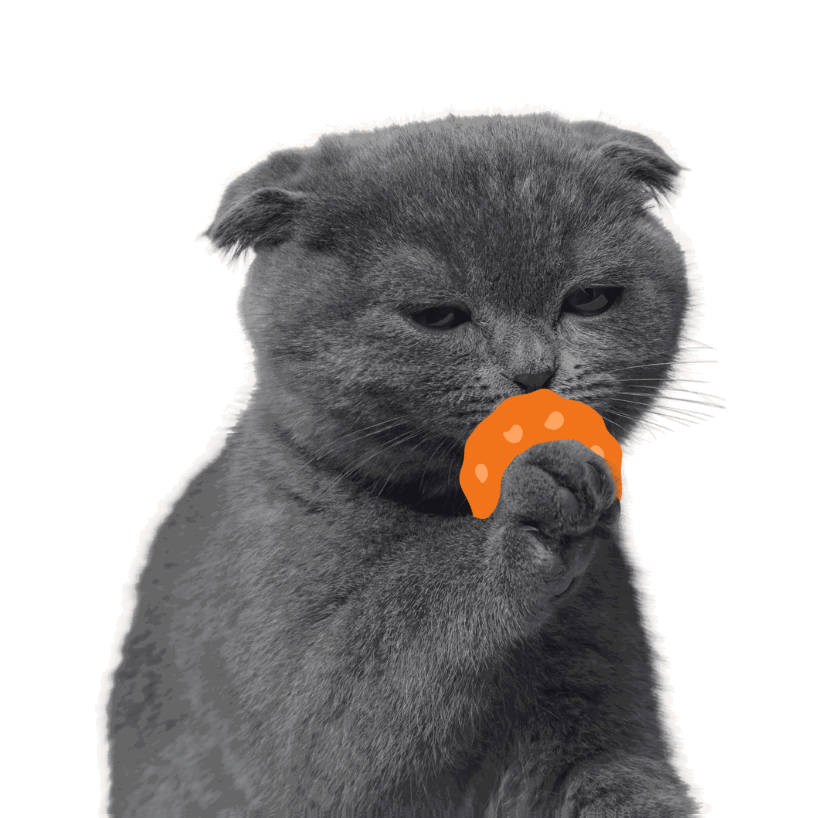
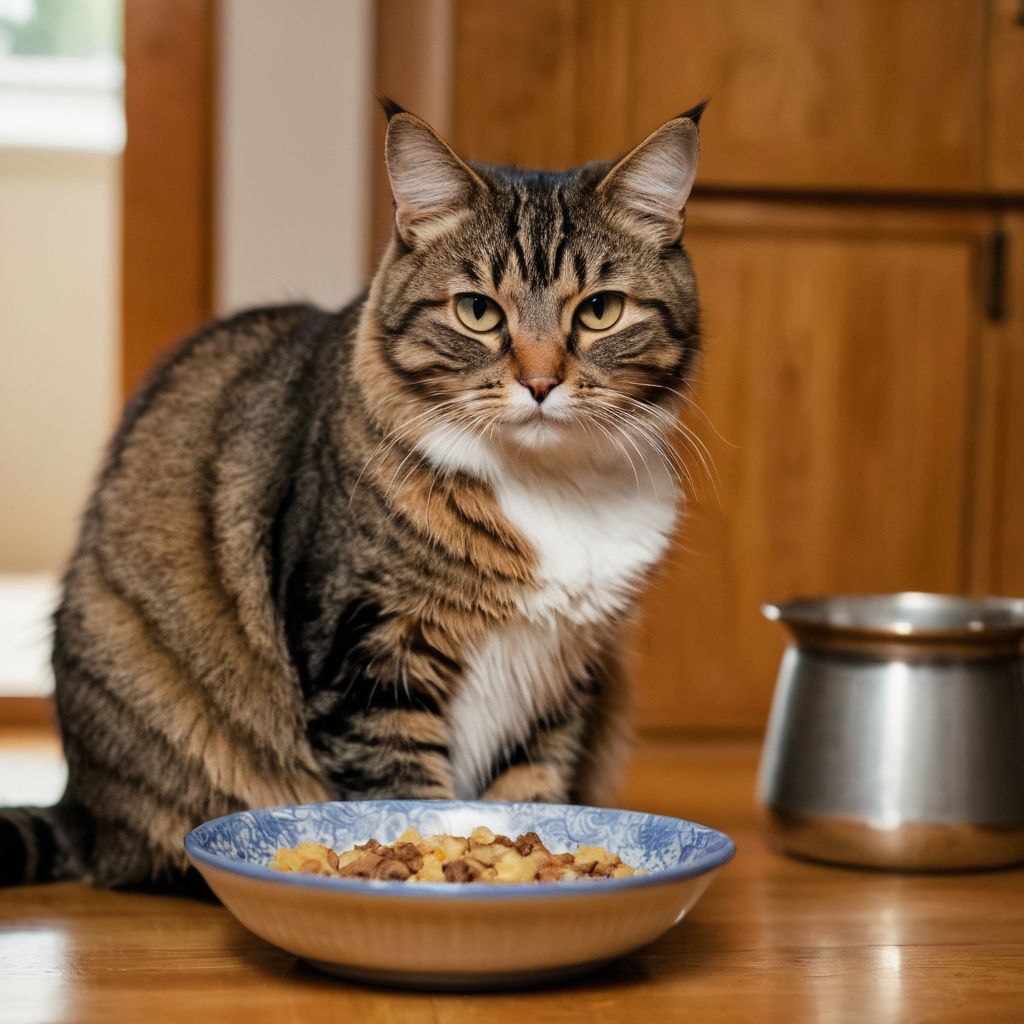
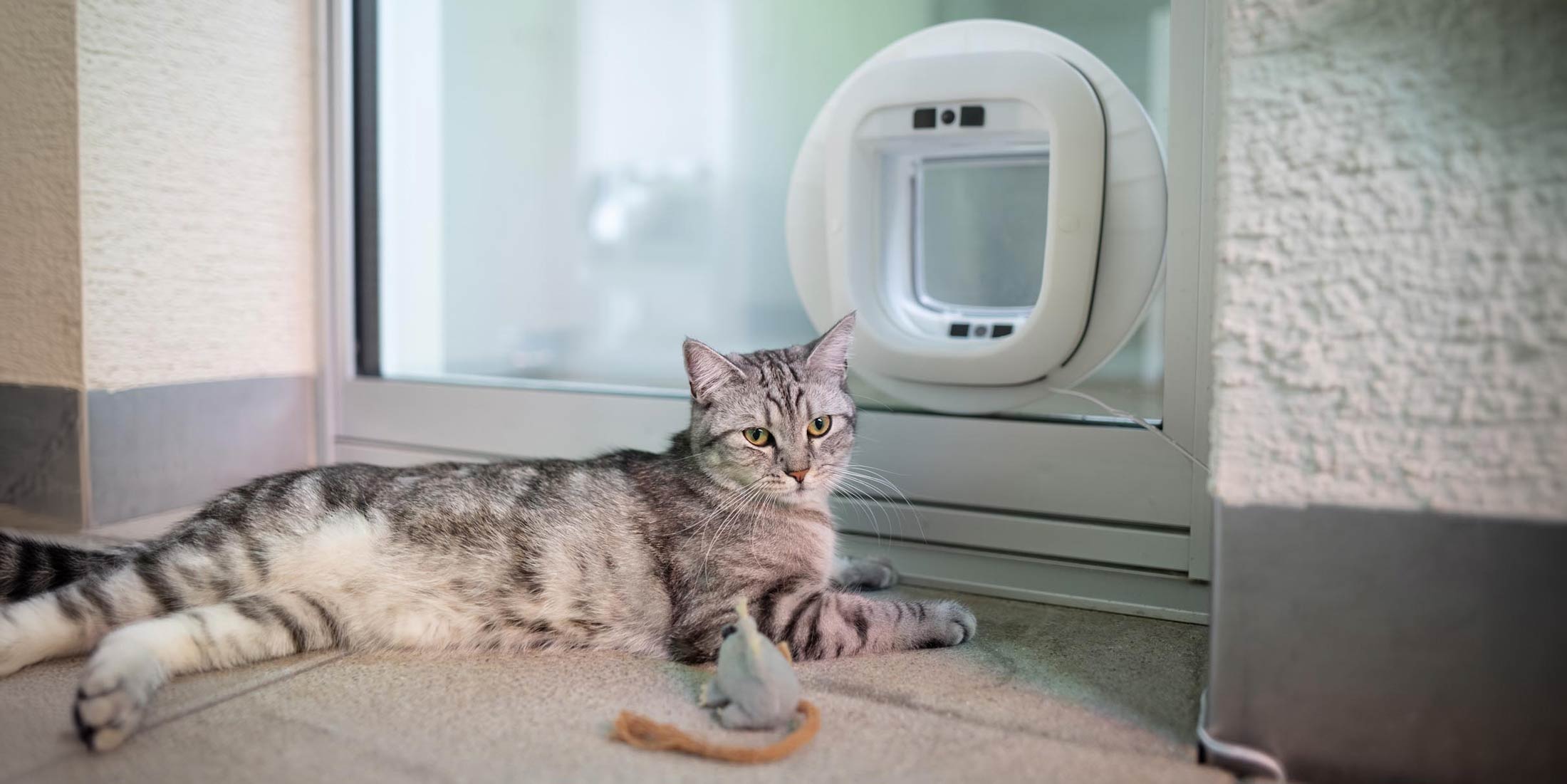
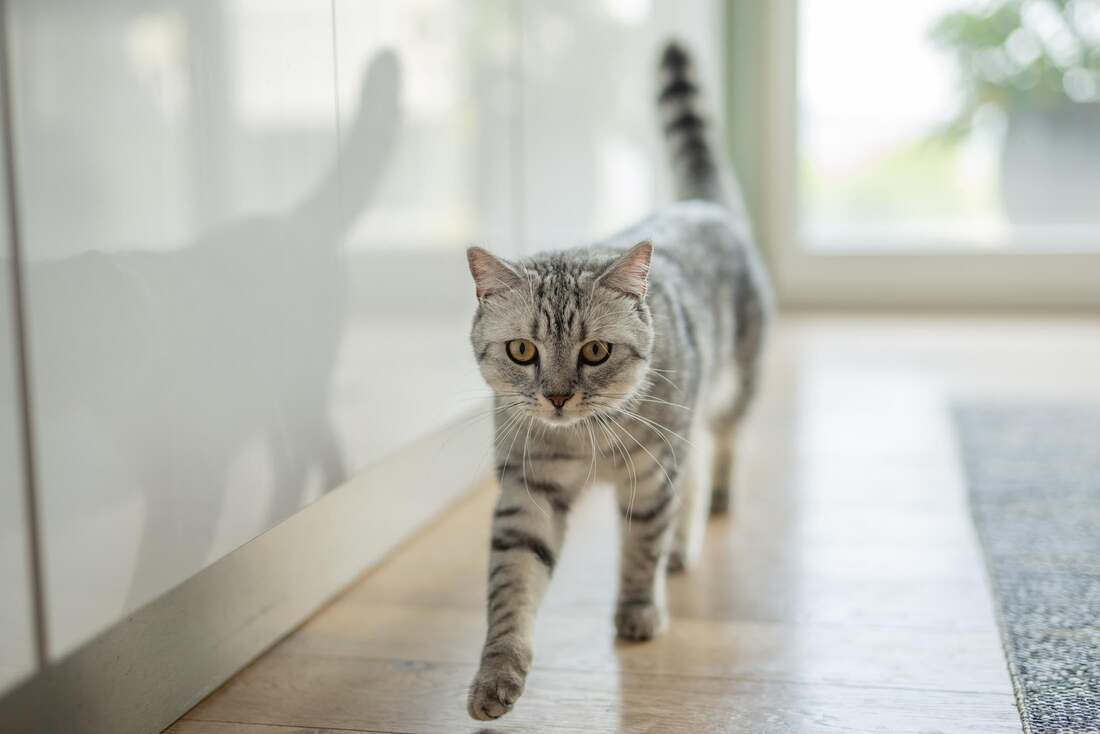
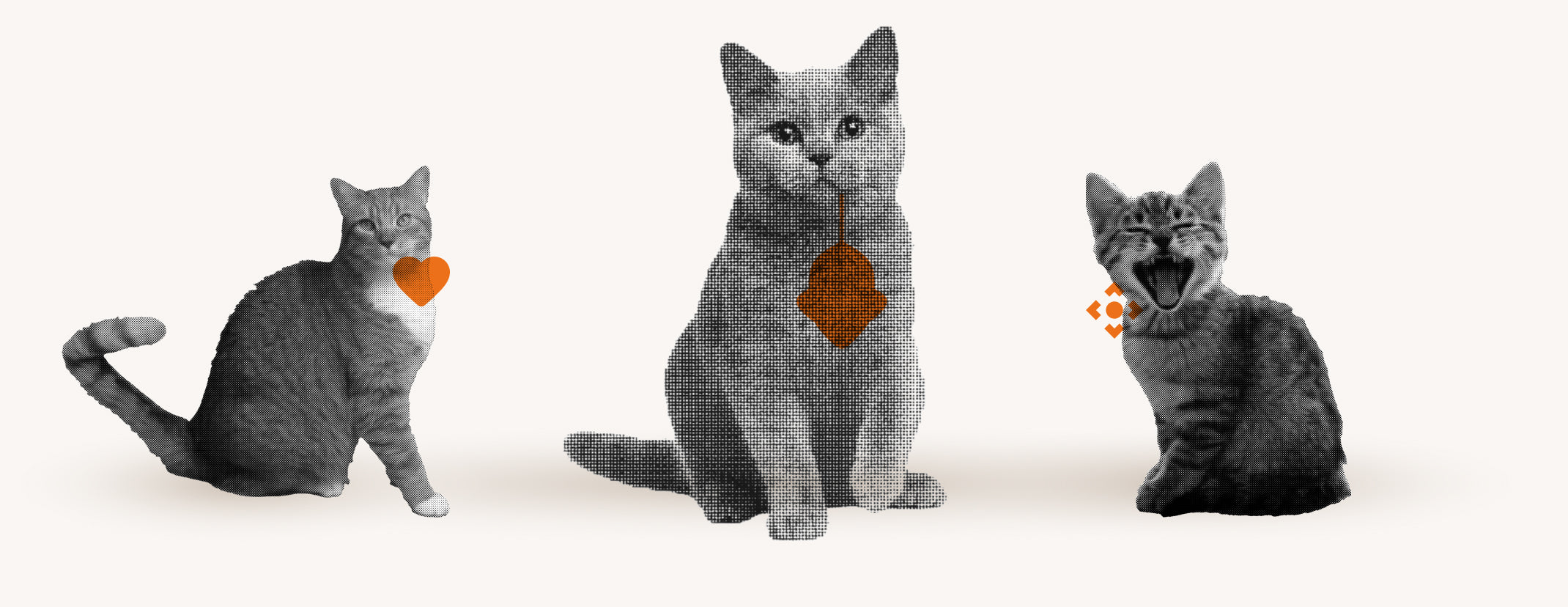
Share:
FIP in cats: Important information about blood count
Effective home remedies for colds in cats